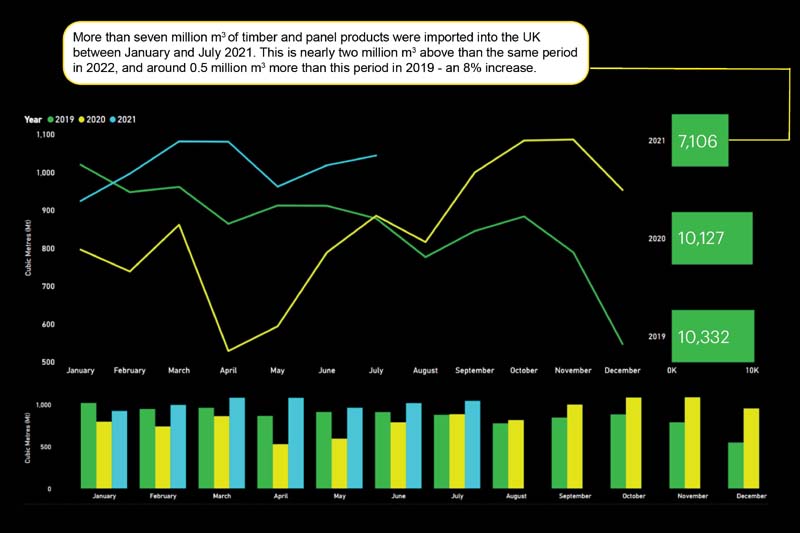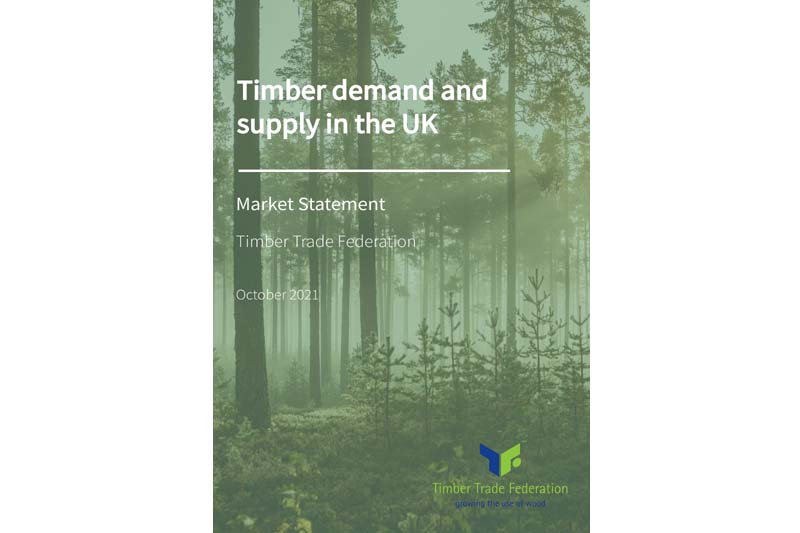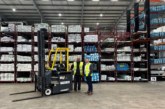
More than seven million m3 of timber and panel products were imported by the UK between January and July 2021, according to the latest Timber Trade Federation (TTF) Market Statement.
This is nearly two million m3 above the same period in 2020, and half a million m3 above 2019 levels – the UKs last ‘regular year’ before COVID-19 – which is about an 8% increase. These record-breaking volumes of imports reflect high demand for timber products with a strong RM&I sector and a resurgent private housing market having kept supply on allocation.
Timber prices, and structural softwood in particular, experienced rapid increases over the course of 2021, a trend explored in an earlier joint timber industry Market Statement in July. These latest TTF statistics show the average price of sawn and planed softwood in May, June and July rose by 55%, 65% and 88% respectively over their corresponding months in 2020.
Nick Boulton, TTF Head of Technical and Trade, said:
“After a year of record production and nine months of near record structural softwood imports it is highly likely the UK is at a point where there is sufficient volume of wood at UK ports and in the UK timber supply chain to satisfy construction demand.
“With Q3 now behind us, which we viewed as a real pressure point this year between supply and demand for timber products, we expect that over the coming months we will find there is greater stability within the UK market. However we are not yet out the woods as any return to ‘regular’ patterns within the UK market will be difficult amidst the ongoing shortage of HGV drivers, and in fuel and labour, which are likely to continue to impact the market in the coming months.
“These shortages are of high concern to the timber supply chain as while there may now be enough timber in the UK to meet demand it does little good to anyone when there are no means to transport stock from ports to warehouses or customers.
“The challenges posed by these shortages are being felt right across the UK economy, and as discussed in our Market Statement, you can view their impact in the latest statistics coming out from the construction sector with growth shown to be tailing off in June and July.
“Despite these challenges, we are confident the timber supply chain can continue to rise to meet the growing demand for sustainable, low-carbon construction materials we are seeing in the market – as it has done so for the past 20 months.
“The UK timber supply chain has proven to be remarkedly resilient amidst an ongoing series of intense global and local pressures which have rippled out since the pandemic, as evidenced through the impressive import volumes reached in 2021.
“As a low-carbon, and crucially – amidst a looming global energy crisis – low-energy construction material, timber is likely to grow as the material of choice among climate conscious architects, engineers, developers and planners in the UK.”
Click here to read the full report via the TTF website.










